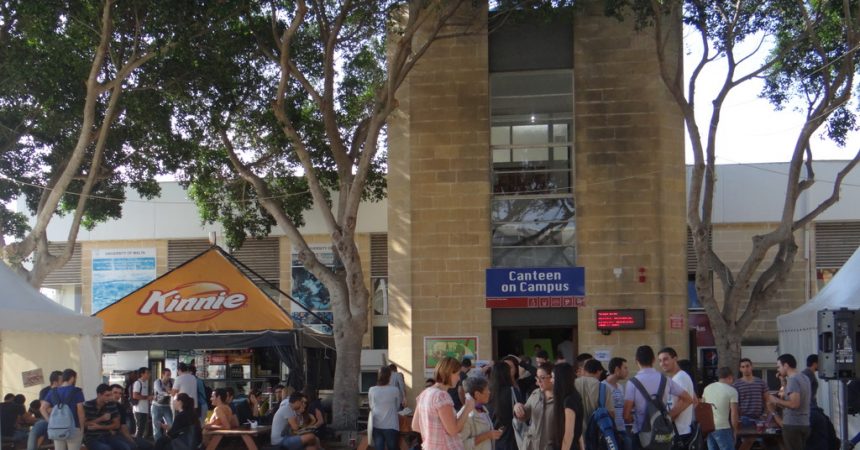Psychology suggests that mischievous, stubborn children are more likely to be intelligent, successful individuals in adulthood. The problems lie with the youngsters who obey too much and do their utmost to please others.
Nearing adolescence, youths tend to be rebellious, confrontational, and arrogant. This is not necessarily a negative aspect: a wonderful climate for engaging, fiery debates is created; a fertile ground on which ideas are born, bred, yet seldom killed.
Even if the stereotype isn’t true, they are usually the most energetic demographic. In Slovakia, students led the mass protests that led to the resignation of their prime minister. In the United Kingdom, Jeremy Corbyn’s grassroots campaign features the youth, who he successfully mobilised to move closer to a majority.
In Malta, a lack of criticism for this government on the University campus is disconcerting. Everybody has got something to say about Donald Trump and ‘the rocket man’, or a joke to crack about Brexit. When it comes to local politics, many steer toward the inoffensive and the sterile. Comments must be artificial in order to “balance out” criticism so as not to sound “biased”.
Such an approach to discussing politics is frankly ridiculous. But it is not inexplicable: the polarisation caused by a political duopoly may have created a binary system in which minds are strictly categorised either in one party or the other. Anything other than that is necessarily perceived as an invalid stance, exactly like not taking sides in a football match.
Sitting on the fence in Malta is a very difficult thing to do. A whiff of apparent sympathy towards one side against the other will negate any argument on the basis of bias. Worse still, the classic whataboutism is employed, “mela nsejtuh żmienkom?”, referring to the wrongdoing committed by a party previously in power.
Most undergraduate students were not old enough to follow political news, let alone support that party. If that whataboutism is least effective against a class of people, it is indeed the youth.
Yet, for the undergraduate students now, who were raised with the prospect of the EU promising a brighter future, domestic politics is toxic. Why should they get involved in a sphere dominated by personal attacks and a relatively censored field of debate? There is no appeal in the mindless adoration of politicians in mass meetings, a sentiment that prevails in everyday discourse.
If there should be a hope to lift the political taboo, it should come in the form of student organisations. These are, however, run by the same youth who dare not touch politics with a barge pole, unless it involves an insipid pro-con policy discussion, safe from controversy. This is a far-cry from the confrontational attitude that is often attributed to the youth abroad.
Instead, ministers are praised for their “sterling work” and their “undying ambition to satisfy students’ needs and ambitions.” That was from a statement released by a university organisation. If this is the sort of uninquisitive, conformist climate that the university operates in, what does this spell for Malta’s future?
Instead of incentivising dialogue, Prime Minister Joseph Muscat has attempted to seize a stronger mandate over the University of Malta. His attempts have so far failed, and there is now additional student and academic representation with less prime ministerial authority.
For a culture change to be slowly affected, parties’ influence at university must be diminished given their unwillingness to affect extra-partisan think-tank level analysis for which Malta is so desperately voracious. On campus, political parties’ organisations are labelling themselves as “activists”. If all they plan on doing is acting as a mouthpiece for their masters in Hamrun and Pietà, “propagandists” is more appropriate.
All students should know that to voice their right to speak has protections rooted in the nation’s Constitution and international law. This is threatened by a system hellbent against dissent.
Public officials are paid for by the citizens to represent their interests, and therefore they deserve to be rigorously held to account for what they say and do. It would be absurd if this was inverted. And yet, despite lying perfectly within their remit as free thinking citizens, critics are labelled as irrational extremists. How can such a prosperous regime be opposed?
If the government is as flawless as it makes itself out to be, then it should have no problem allowing its citizens to voice their opinions.
Actual activists, as youth should be, are critical of authority and can think independently of party structures. It is no wonder, therefore, that real activists are labelled “extremists” once their thoughts cannot be vetted.
The effects are radical: Labour could soon change the Constitution unilaterally. This is profoundly detrimental to democracy. It is another reason that disregarding opinion because it is “biased” cuts no ice: it is entirely democratic to criticise an almighty government over a weak opposition.
In an article on the university student paper The Third Eye, a contributor praised American students for advocating for stricter gun regulation. At the end, she said that Maltese students ought to be prepared to stand up for issues should they arise. If the Vitals scandal, the Panama Papers, and the murder of Daphne Caruana Galizia are not issues that warrant student activism, what should we be waiting for?













